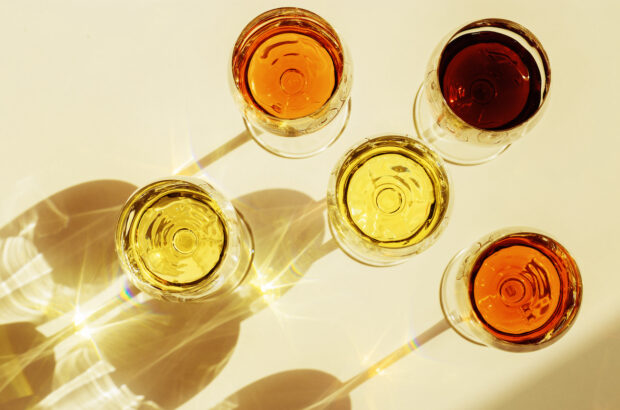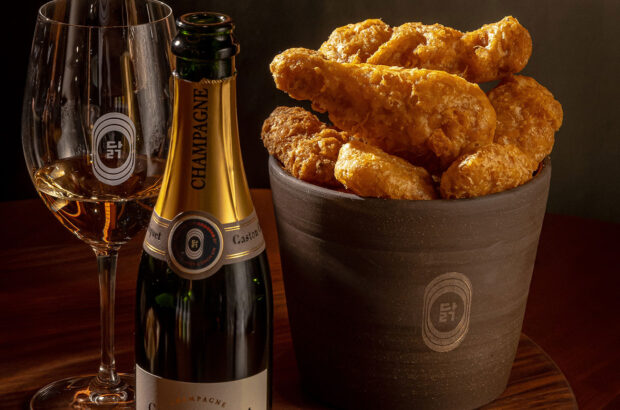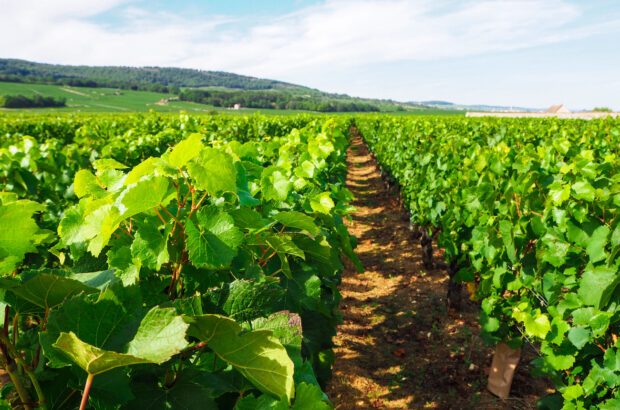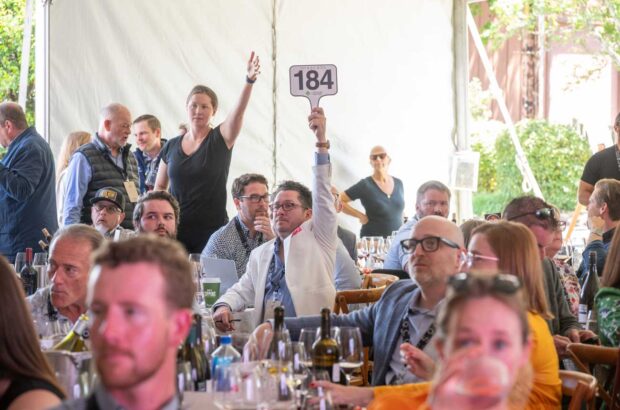Most narratives of Bordeaux are centred around a few dominant names and families. The region has grand traditions and great families, but this can not always be a positive thing, particularly when talking about diversity.
It’s a subject that was raised recently by Florine Livat at Kedge Business School in Bordeaux. With a PhD in economics, Livat worked as an economic analyst for a wine broker before joining Kedge.
She released a statement earlier this year drawing attention to the lack of women at the top level of the Bordeaux wine industry, describing it as a result of the not only ‘patriarchal but often patrilineal’ wine industry. In other words, a structure that puts barriers up to whole groups outside the inner circle, which means that even without actively trying to exclude newcomers, there have always been psychological, social and practical barriers.
An honest conversation
Embracing diversity and inclusivity means going further than focusing on male-female representation. It means recognising stories like those of Bordeaux-based wine consultant Chinedu Rita Rosa, who says she was always treated with respect when she owned a wine shop in Nigeria, importing wines from Bordeaux châteaux, but that when she moved to the city full time and looked for marketing or sales roles with those same châteaux, they were far less welcoming ‘now that I was no longer commercially important to them’, as she puts it.
It means also listening to Namratha Prashanth, who moved to Bordeaux from India and has launched her own successful wine brand, in part because she sent out more than 100 job applications to châteaux but didn’t receive a single reply. The end results in both cases are success stories, but how many other voices are unheard in similar circumstances?
‘As with women, black and other minority wine professionals in Bordeaux have to justify and prove their worth far more than white men in the same situation,’ Livat says.
Changing this takes recognition of the enormous benefit that diversity has always brought to Bordeaux. I could have included here the brilliant Michael Huang at Château de Bonnange, who made his money building an e-commerce business in China and now owns an estate in Blaye where he is focusing on old-vine Malbec; or sommelier Omar Barbosa at Le Chapon Fin restaurant, Best Sommelier of Mexico in 2011 and 2013, and who first arrived in Bordeaux in 2017 to work at La Cité du Vin. Or Tunde Thompson, a Nigerian wine expert who recently set up his own export company in addition to his work as a consultant for négociant Maison Rivière.
Or José Sanfins, the director and CEO of Château Cantenac Brown, a Margaux third growth classified in the 1855 ranking. He has been in the role for almost two decades, working under three different owners and, as a result, is firmly part of the Bordeaux establishment. But he doesn’t fit the expected profile at all.
Sanfins was born in Portugal but moved aged three to the tiny island of Patiras, surrounded by the Garonne river. His parents were vineyard workers. He started out in the vines also, before studying winemaking and viticulture at Blanquefort agricultural college and arrived at Cantenac Brown in 1989 as a trainee.
Celebrating diversity also means economic diversity within the local community, ensuring it is not just the big-name châteaux that get recognition – Daniel Alibrand, for example, an Atlantic deep-sea fisherman who is now a winemaker at Domaine de L’Alliance in Sauternes, or Vincent Quirac of Clos19bis, who bought a hectare of vines in Graves after changing from a career as a tour guide in the Sahara. Or Sébastien Fontaneau in St-Yzans-de-Médoc, who was a vineyard worker before creating his own brand, L’Or des Terres.
This is a port city that has always welcomed visitors from, and traded with, pretty much every country in the world. Finding the stories within Bordeaux that show this is still true is of benefit to everyone.
Chinedu Rita Rosa
Regional representative, Château Dauzac, Margaux/wine consultant
‘Naija people are born entrepreneurs,’ says Chinedu (ChiChi) Rita Rosa (pictured top) , using the word that captures the confidence, resilience and sense of identity of Nigerians. She has been living in Bordeaux for six years now; she moved to the city in 2016 after 15 years in the wine industry in Lagos, and now runs her own consultancy, as well as representing Château Dauzac across the African continent.
Rosa worked as a banker before moving into wine after the death of her first husband in 2008. The family had been living in Lebanon until this point, but Rosa returned to Lagos to take over as part-owner and director of his former business, XO Wine Stores. Located in Ikoyi, one of the city’s most affluent neighbourhoods, she built up the company’s range of classified Bordeaux, Champagne and Cognac, and also launched several wine education programmes.
‘I learned about wine while drinking on the job,’ she says. ‘Nigeria is a beer-drinking society, so I enjoyed shifting people’s opinions, and learned about importing, wholesaling, retailing and marketing. Wine education is part of that.’
She met her second husband – working in the energy sector in Lagos but originally from Paris – in the store at a wine education event, and together they moved to Bordeaux.
‘When I arrived here, I thought it would be easy because I had so many contacts, but it felt like starting all over again. I wasn’t taken seriously, and instead it seemed that because I was no longer commercially useful to them, I had been relegated to a third party, and there was no understanding or valuing of my knowledge. I applied for a lot of jobs, without a response. And I am not the only person to have had this experience. Why don’t you see more black people in the Bordeaux wine industry? There are many talented people that don’t want to come into this business because they know what they will face.’
Rosa realised she had to make the business side happen for herself. ‘I love this town, love the lifestyle,’ she says. ‘You need to know your own worth and value, to set your own terms and stick to them. So I decided to create my own village. I launched the Bordeaux Business Network and began to make contacts, eventually launching my own consultancy business.
‘I am regularly the only black person in the room at wine events. I want to encourage other black entrepreneurs to come into this business, because there is so much room to grow. I have a 20-year plan and am only at the beginning of it – I want to stop making wine stuffy, bring in more young people, help inclusivity. I have a vision when it comes to what the Nigerian wine market will look like and want to work with partners who understand that. Working across Africa, as with any continent, requires expertise and local knowledge. But the opportunities are huge.’

Melody and Andrew Kuk
Melody & Andrew Kuk
Château La Commanderie, Pomerol
You might think that buying in Pomerol puts you in a different league in terms of perception and prestige. But it is also a closed community focused very clearly on winemaking, meaning that arriving there as outside investors is not necessarily smooth sailing.
‘At first, our expectation was that people would be waiting to judge us,’ says Melody Kuk, owner of Château La Commanderie. ‘But we didn’t want to knock on too many doors, and thought we needed credibility first. So we kept our heads down, we didn’t build an outrageous château, we just tried to make good wine, and slowly they opened up to us. That felt really good because it felt earned.’
Following careers in construction and communications in Hong Kong and mainland China, Melody and Andrew Kuk bought the estate in 2013 when Melody was pregnant with their son.
‘In general, Bordeaux has been very welcoming to me,’ says Melody. ‘I can ask questions and state what I want and not be judged as a foreigner. We had made quite a few friends at wine fairs and tastings before moving here, and visited at least four times a year for two years before making the decision to buy.’ She adds: ‘People here are very open, they have a sense of international community and most speak English, so I felt very at home.’
When they bought the vineyard, they went straight into renovations, and for almost three years rented an apartment in the centre of Bordeaux. ‘After the renovations we moved to Pomerol, which I admit is a little more closed than the city of Bordeaux,’ Melody recalls. ‘Having Pascal Chatonnet as our consultant was crucial. He guided us through every process and has been invaluable over the past year when we have not been able to travel.
‘When we are able to get back there, the first thing I will do is to change into my rain boots and walk through the vines. There are distinctive tastes and smells of Beijing, of Hong Kong and of Bordeaux. In my head it is very fresh in Pomerol, and you always smell the sunlight.’
She admits: ‘Having said that, I thought having a Pomerol name would make it easy, but you still have to work hard to prove yourself. Every now and then something happens to remind me that it might take longer than we thought, but that’s okay. For others who are thinking of doing this, I would tell them to make friends and to not be afraid to share their troubles.’

Osamu Uchida
Osamu Uchida
Domaine Uchida, Haut-Médoc
To find Domaine Uchida, take a small road alongside the landscaped gardens of Château Mouton Rothschild in Pauillac, and you’ll arrive at an unassuming house and garage. This is where Osamu Uchida set up his winery in 2015, comprising a row of barrels, amphorae and tiny micro-vinification vats.
If travel allows, try to get there this year, as he will be moving to be closer to his vines soon – they are entirely in AP Haut-Médoc, in the commune of Cissac, close to 1ha of Cabernet Sauvignon and 100-year-old Merlot, with a few slices of massal-selection Sauvignon Blanc and Sauvignon Gris planted last year.
Uchida was born in 1977 in Hiroshima, where his parents ran a grocery shop. He was a serious long-distance runner as a teenager, specialising in 3,000m and 5,000m, discovering wine when he moved to Tokyo and was introduced to Riesling by a friend. He first came to Bordeaux in 1999 to study, then began visiting or working in cellars across France, racking up more than 300 visits together with stints in Banyuls, the Rhône and Burgundy over the next few years, before signing up to study the DUAD tasting diploma at the Bordeaux school of oenology.
‘I returned to Japan in 2006 to work as a wine importer,’ he says, ‘but by this point I had already fallen in love with natural wines, and knew that I wanted to make my own. And by 2010 I was back in Bordeaux. My friends told me I was crazy to try to work biodynamically in Bordeaux – and even crazier to do it in the Médoc. This small area of vines came up for sale where the grapes had been sold to a cooperative cellar, but the land had never seen any chemicals. It made it easier for me to begin working in organics and biodynamics.’
Uchida is a perfectionist – not only does he make brilliant wines that are increasingly sought after, but he is resolute in his conception of taste. In 2020, he found an extra 1ha to lease, doubling the size of his vineyard, but on vinifying the wine after harvest, he was not happy with the quality and has returned the lease – a brave move after the expectation of doubling his production from the current 3,000 bottles.
‘I will bottle the 2020 as a Vin de France under the name Phéromone. It’s good quality but not up to the level of my original vines, and I don’t want to compromise on the quality. I am currently looking at some different vines and hope this time it will work out.’
Even after he leaves Pauillac, Uchida will be coming back regularly to run with the local Centre Médoc Athlé, which he credits with helping him to make friends when he moved permanently to the area.
‘It began as preparation for the Marathon du Médoc, but we continue to run together every Sunday,’ he says. ‘I am out running through the vines every morning, and it is an extremely important moment in my day.’

Latifa Saïkouk
Latifa Saïkouk
Château Le Mont du Puit, Médoc
A self-taught winemaker of Moroccan descent, Saïkouk was born in the Médoc in 1977, five years after her parents moved to the area from Fez to work at Château Verdignan. She grew up at the estate, where her father worked as tractor driver and vineyard manager, and her mother alongside him, responsible for tasks such as pruning and trellising.
‘I began driving tractors aged nine,’ says Saïkouk. ‘I loved it, because I always saw my dad driving them, and from there I became interested in all aspects of making wine.’
Saïkouk was mentored by neighbouring winemaker Jean-Pierre Dupuy, who encouraged her to study at the local agricultural college in St-Yzans-de-Médoc. She worked alongside him on his own estate for a few years, and when he retired in 2001, rented his 2.5ha of vines.
For the first few years, she vinified at the local cooperative cellar, as Dupuy had done, but in 2006, aged 29, she began bottling herself, originally under the name Château Saïkouk, then as Château Le Mont du Puit (with Saïkouk continuing as a brand).
‘First harvest was a disaster. I slowly learned how to respect the fruit, and to make a wine that was in a style that I wanted to drink,’ she says.
‘It wasn’t the usual thing to see a woman who had driven tractors begin making her own wine, so there was some surprise. Especially when I decided to make wines that were easy to drink young, without huge tannins and so a little unusual in the Médoc. Then I designed a bright pink wine label with my name in big letters across it. But I have never been afraid to stand out, and I liked the colour. I was inspired by estates such as Lafon-Rochet and Dauzac, which have bold, single-colour labels. It turned out to be a smart move though, as it meant people remembered the wines.’
Saïkouk produced 2,000 bottles in 2006, and now makes 15,000 bottles per year, all from her own grapes – having expanded slowly but surely up to 8.2ha across APs Médoc and Haut-Médoc. A small 0.2ha plot of white grapes is now bottled under AP Bordeaux Blanc, and a new range of wines is planned for launch in 2021 under the brand Collection de Saïkouk, comprising a crémant, white and rosé, along with a red wine vinegar and an olive oil.
Her estate is located in the village of St- Seurin-de-Cadourne, directly to the north of St-Estèphe and the site of Haut-Médoc icon Sociando-Mallet, where Saïkouk worked in her early years. She also makes a rosé with Sylvie Gautreau of Sociando-Mallet called Le Rosé des Copines, and her success has been widely recognised – not least by receiving the Ordre du Mérite Agricole in 2020 by the French Ministry of Agriculture.
‘I was discouraged at first from using the name Château Saïkouk, because it was seen as too untraditional, so I chose the name Château Le Mont du Puit in honour of Jean-Pierre Dupuy. But I have never been ashamed of my name. It is right there in big lettering, and it turned out to be the best decision, because it has allowed me to develop the brand Saïkouk and to give myself freedom to think creatively.’

Namratha Prashanth. Credit: Dennis Tappe Media
Namratha Prashanth
Having moved to Bordeaux from Bangalore in 2017 to study for an MBA in wine marketing at INSEEC university, today Namratha Prashanth runs her own wine brand, Wine Equation. Its first wine, Solicantus, a Blaye Côtes de Bordeaux, launched in March 2020, and a white Entre- deux-Mers has just been added to the range.
‘When I finished up at INSEEC in autumn 2018, I sent out more than 100 job applications to châteaux and négociants,’ she says. ‘I didn’t receive even a single reply, let alone an interview request.’ The rejection letters were particularly tough because she knew that her visa depended on her having a job.
In the end, it was a partnership with fourth-generation French winemaker Corinne Chevrier that proved to be the way out for Prashanth, after a chance meeting at Vinexpo. ‘We began by working on 5ha together, and decided to use some of the grapes to bring out a separate label. I was working on branding for another client at the time, and decided to go ahead and create my own brand.’
Her ‘talent passport’ business visa came through in late 2019, and her company Wine Equation was born, concentrating on limited bottlings. But wine is only part of Prashanth’s ambition. She moved to Bordeaux to leave behind an abusive marriage, and from the start has wanted to launch a charity as well.
Prashanth has recently joined forces with Ritu Chhabria, managing trustee of the Mukul Madhav Foundation (MMF), a non- governmental organisation that works in the fields of healthcare, social welfare, water conservation and education in India.
To support MMF, 30 cents from the sale of every bottle of Solicantus will go to support marginalised tribal girls in remote areas of India who are in need of funds for education. ‘Just €100 will give them access to education for a year,’ she says, ‘and Solicantus can contribute in its own small way to helping a few of them.’







